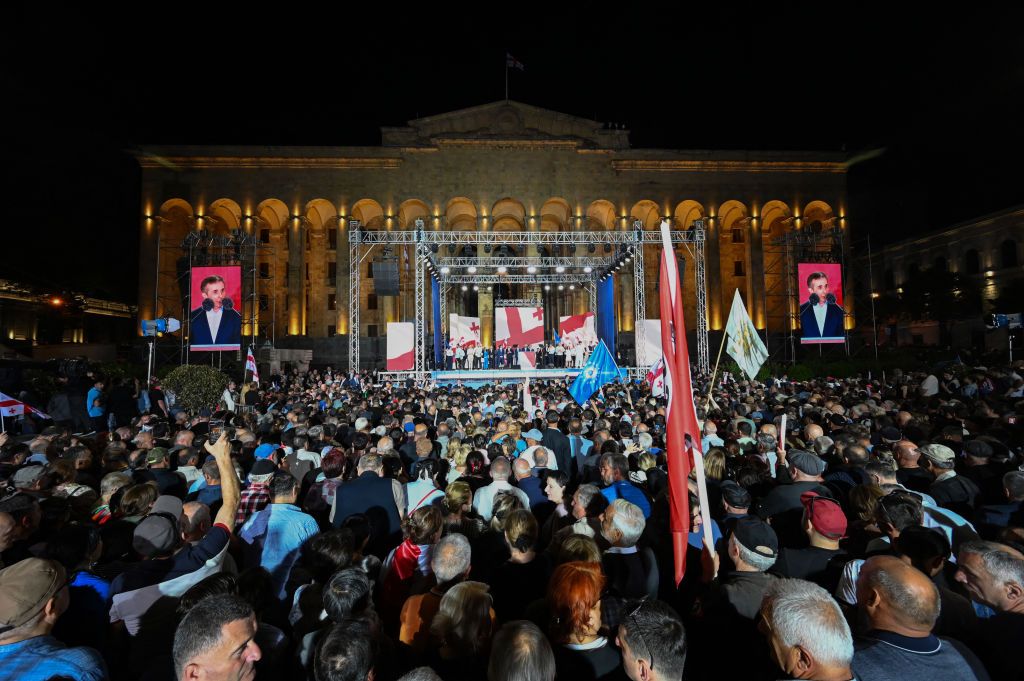Georgian president accuses government of being 'prone to making concessions to Russia'

Georgian President Salome Zourabichvili escalated her criticism of the ruling Georgian Dream party in an interview with Deutsche Welle on May 3, directly accusing the government of being "prone to making concessions to Russia."
"It is increasingly clear that it is not just the 'Russian law' that is the problem, the problem is the Russian government," said Zourabichvili.
Zourabichvili was referring to the controversial foreign agents law, known popularly among its opponents in Georgia as the "Russian law," which Georgian Dream is attempting to pass in parliament.
The legislation, scheduled for its third and final reading on May 17, would require organizations that receive foreign funding to be labeled as "foreign agents." It mirrors repressive Russian laws used to crack down on Kremlin regime critics.
The attempts to pass the law have sparked mass demonstrations in the country, with the police reportedly stepping up attacks against the protesters with tear gas, rubber bullets, and water cannons.
Several media outlets also reported on May 3 that unidentified, masked men began beating protesters at random.
Zourabichvili's comments echoed a growing sentiment that the protests are not just aimed at the unpopular law, but have shifted into a wider anti-government position.
Western leaders have denounced the law and Georgian Dream's attempt to pass it against the clear will of the people.
In the latest diplomatic effort, European Council President Charles Michel had a phone call with Georgian Prime Minister Irakli Kobakhidze, where he stressed that "Georgia's future belongs with the EU" and urged the prime minister not to "miss this historic chance."
In turn, Kobakhidze also commented on the phone call, saying that he expressed his "disappointment" over EU officials' supposed unwillingness to discuss the law.
The prime minister also repeated unsubstantiated conspiracy theories about the purported role that NGOs had in attempting revolutions in Georgia in 2020 and 2023.
Kobakhidze concluded by saying that the foreign agents law is a "crucial prerequisite for achieving depolarization, which is the main recommendation of the EU."
EU officials have repeatedly underscored that the law's passage will hurt Georgia's chances of joining the bloc.













